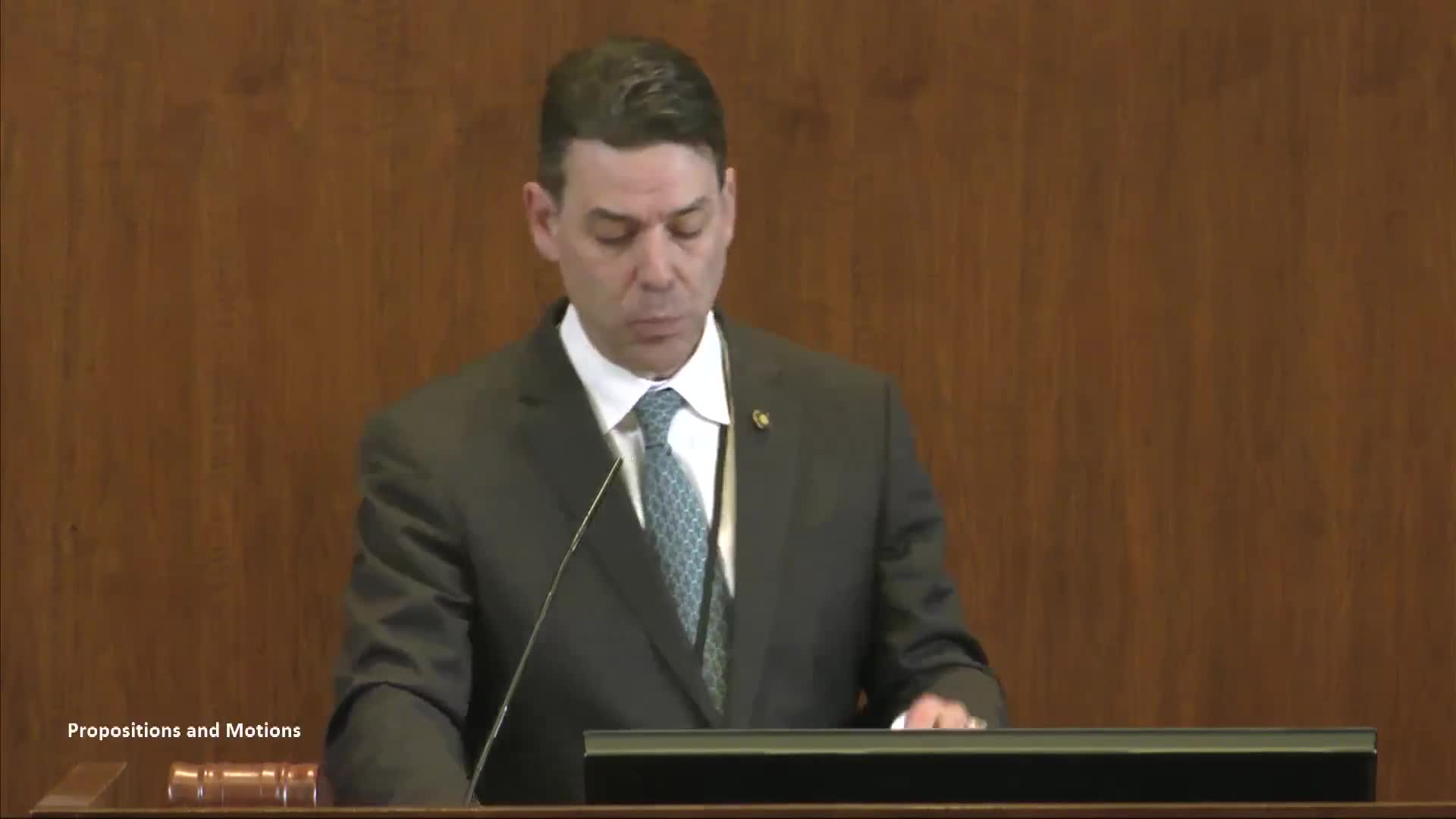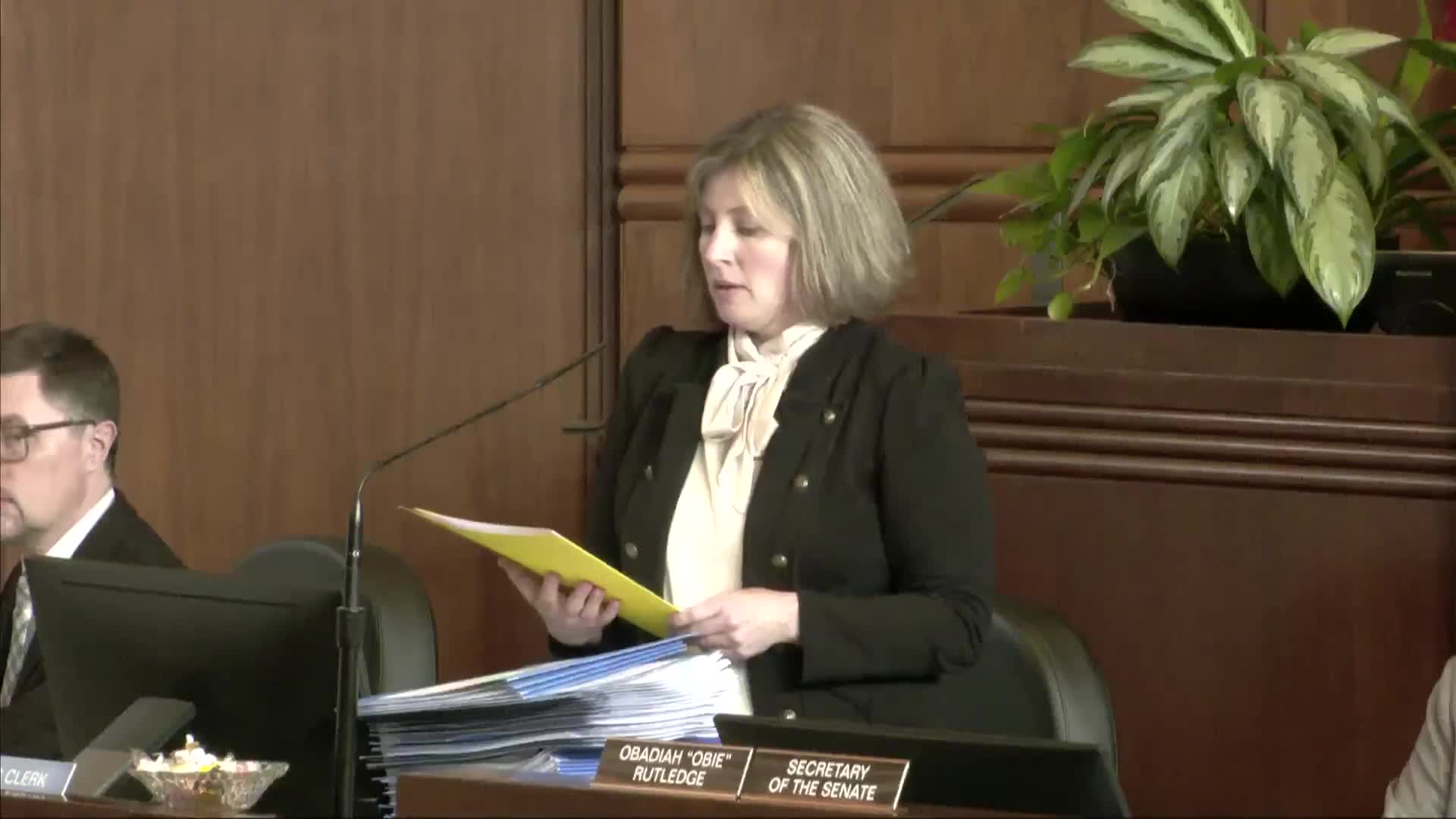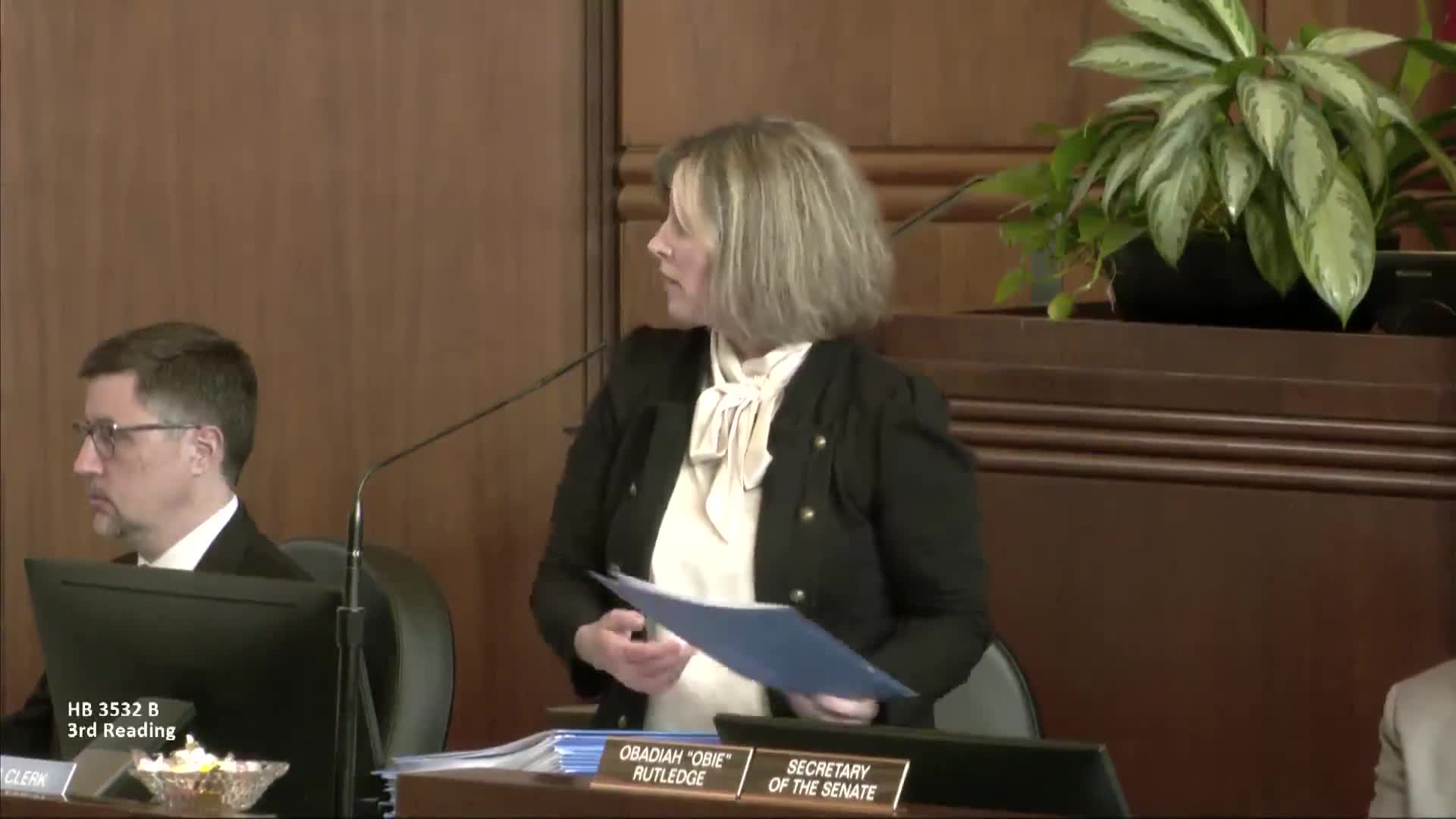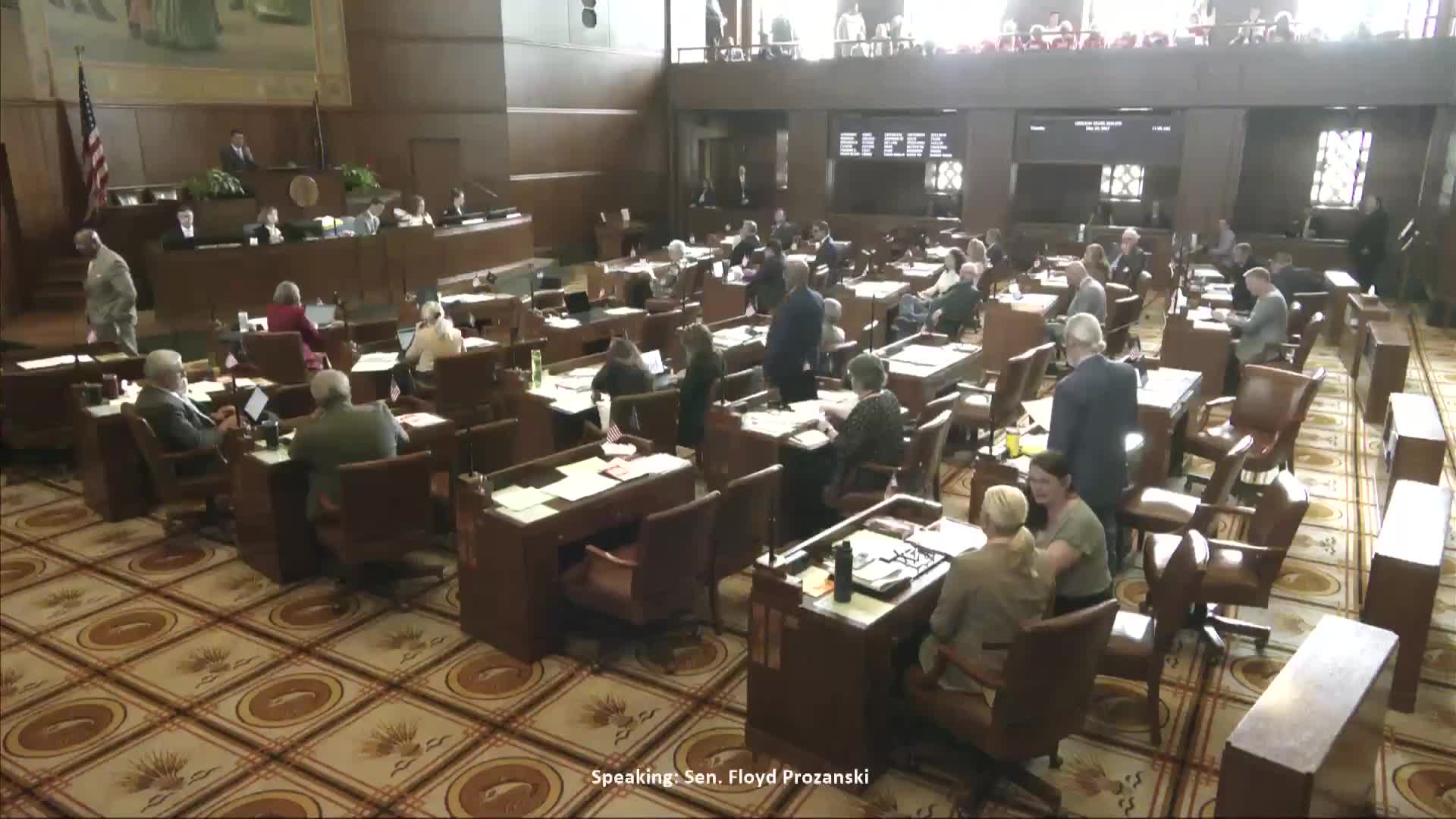Article not found
This article is no longer available. But don't worry—we've gathered other articles that discuss the same topic.

Senate passes bill to ban rapid-fire accessories and let local governments restrict firearms at official meetings

Senate approves bill to allow sale/lease of surplus interstate air rights to support Rose Quarter reconnection

Senate adopts bill requiring faster renaming of offensive geographic place names

